From far-away expeditions to research and construction right here on the Bay Campus, your likes, shares, and clicks told us what inspired, educated, and connected you to our changing ocean planet. Check out some of GSO’s most-liked posts and most-read stories of the year!
GSO scientists some of the first in the Northern Hemisphere to see the total solar eclipse
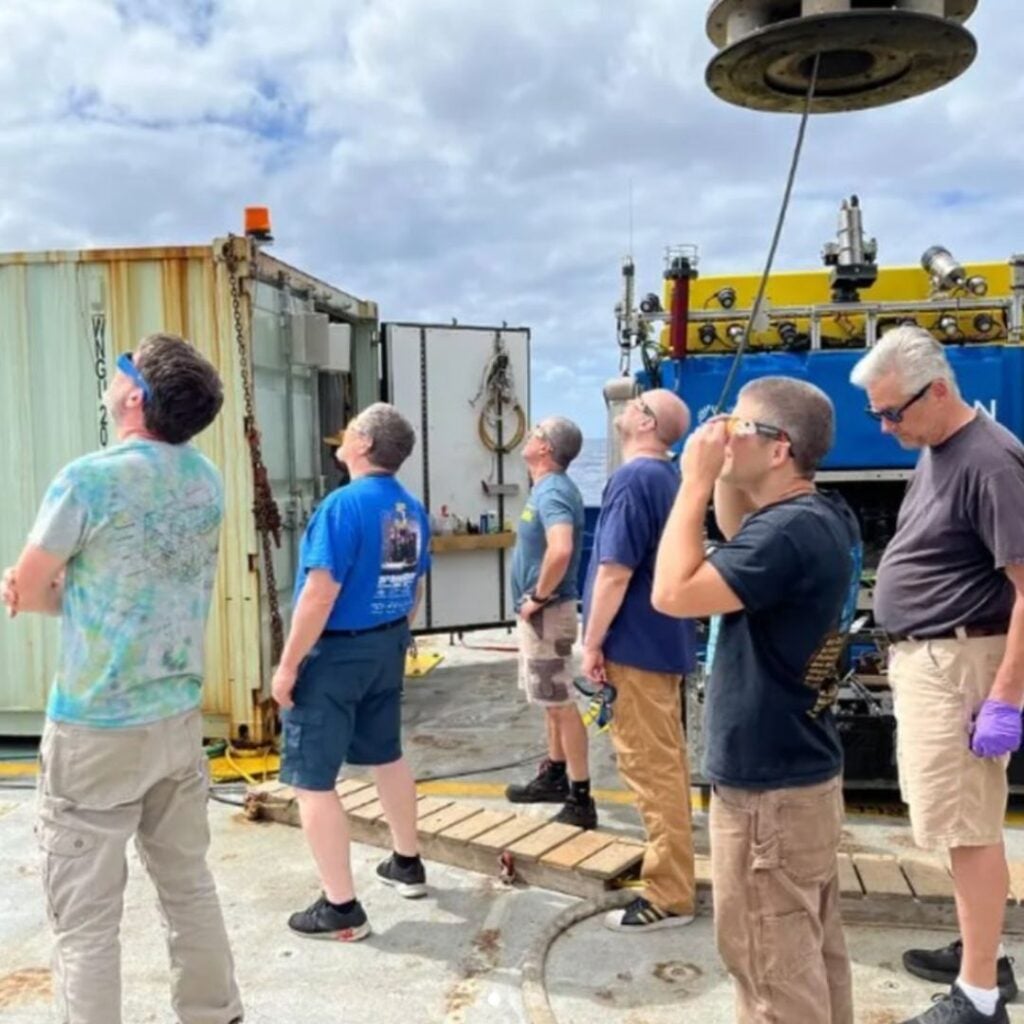
The team, led by GSO’s Katie Kelley, was mapping the seafloor about 400 miles southwest of Mazatlán, Mexico, when the moon completely eclipsed the sun, almost 20 minutes before totality reached the mainland.
The NSF-funded RR2403 was focused on the Revillagigedo Archipelago. Across nine submersible dives via ROV Jason/Medea from the RV Roger Revelle, the researchers collected around 200 rock samples or scoops, approximately 8 push cores, and water samples using Niskin bottles.
Ph.D. student Christine de Silva appears on Discovery‘s Shark Week
Christine de Silva appeared in her fourth Shark Week episode since 2020, as co-host for the season’s “Alien Sharks: Ghosts of Japan.”
In the episode, de Silva and co-host Forrest Galante aim to find and tag a Japanese angelshark, an elusive bottom-dwelling species, in Japan’s Suruga Bay. The show allowed de Silva to showcase her company, Juice Robotics, which develops underwater cameras and equipment capable of operating at depths of up to 3,000 meters.
View on Instagram
GSO alums contribute to NASA’s PACE satellite
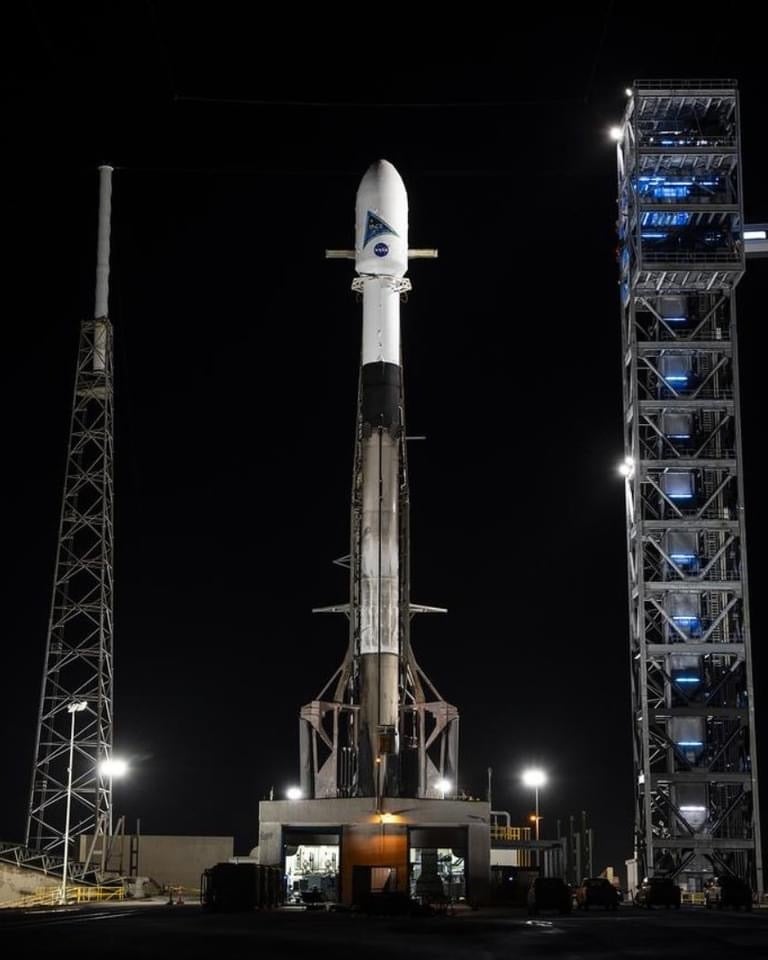
NASA’s Plankton, Aerosol, Cloud, ocean Ecosystem (PACE) satellite, launched in February, collects data on microscopic life in the ocean and particles in the air, advancing researchers’ understanding of issues including fisheries’ health, harmful algal blooms, air pollution, and wildfire smoke.
Contributors to the PACE mission form a tight-knit community & many are GSO alums! From Dean Paula Bontempi, who was part of early PACE feasibility studies at NASA, to the field scientists validating satellite data, GSO grads have contributed at every step.
Read in aboard GSOFocus on lobster population in Southern New England
In July, Jeremy Collie appeared in an edition of Rhode Island PBS to talk with Michelle San Miguel about how the lobster population off Rhode Island’s coast is dwindling in response to climate change.
Dwindling lobster ON PBSCandace Oviatt and Kristin Huizenga (Ph.D. ’22) undertook several novel experiments to understand the decline in the population of American lobsters in southern New England. Their research suggests climate change-induced warming waters and increased migratory fish predators threaten juvenile lobsters and the overall fishery.
Read in Aboard GSO
Construction continued on our new RCRV Narragansett Dawn in Houma, Louisiana
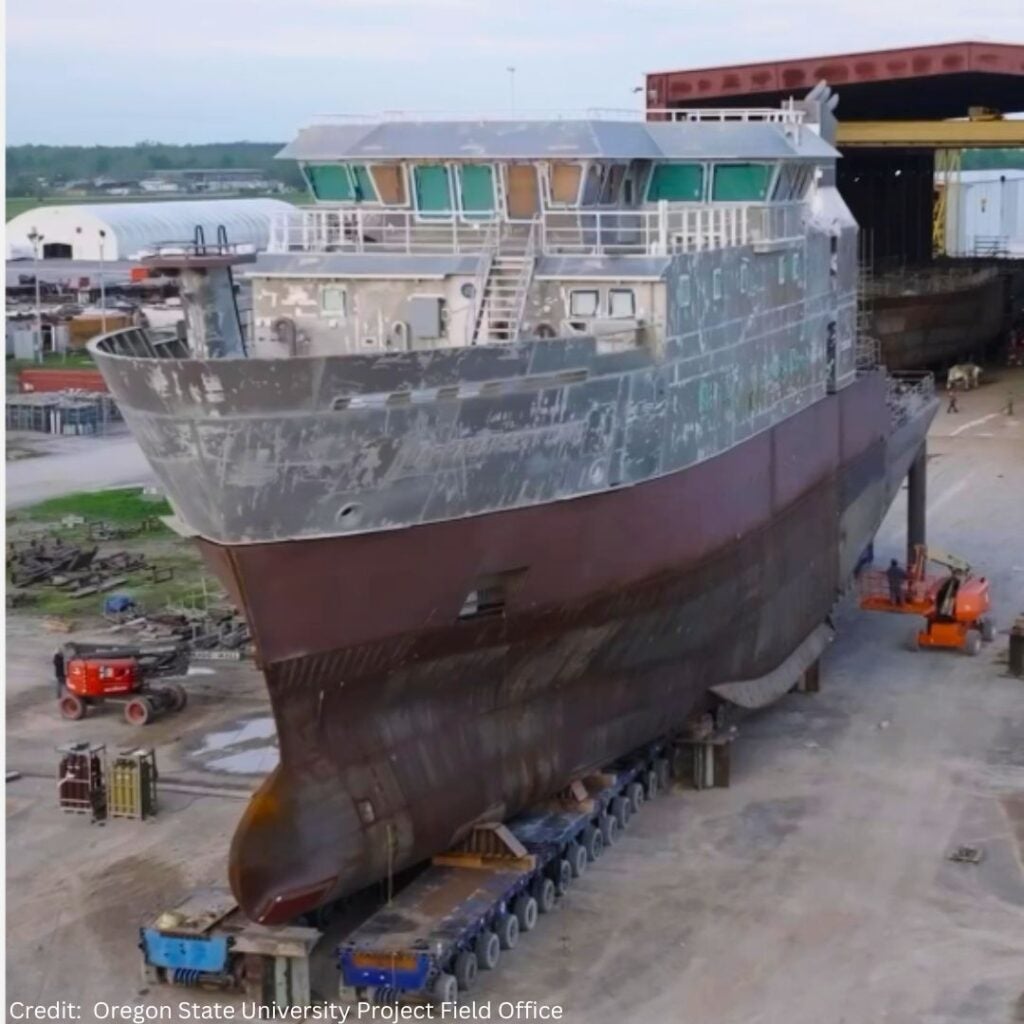
In 2024, we moved closer to realizing our state-of-the-art RCRV with several construction updates. Here, the aluminum superstructure of the RV Narragansett Dawn was successfully placed onto its steel hull.
The NSF is funding construction and operation of three new regional class research vessels to join the U.S. Academic Research Fleet. The University-National Oceanographic Laboratory System (UNOLS)-run vessel will bring new technologies, greater capabilities, and course-altering discoveries to GSO and beyond!
Watch the videoAnother cohort of Rhode Island Teachers at Sea set sail on R/V Endeavor
Five local K-12 educators, two URI students, a URI staff member, and the executive director of Educational Passages traded in their classrooms and offices for the open ocean, gaining hands-on experience conducting ocean research.
Under the guidance of GSO’s David Smith, the ship’s crew, and marine technicians, they deployed oceanographic instruments, collected sediment samples with a multi-core sampler, analyzed water column data and samples with a CTD and studied plankton using a trawling net and microscope.
Explore RITAS
GSO’s research dean serves as primary volcanologist in groundbreaking coral reef research in Hawaii
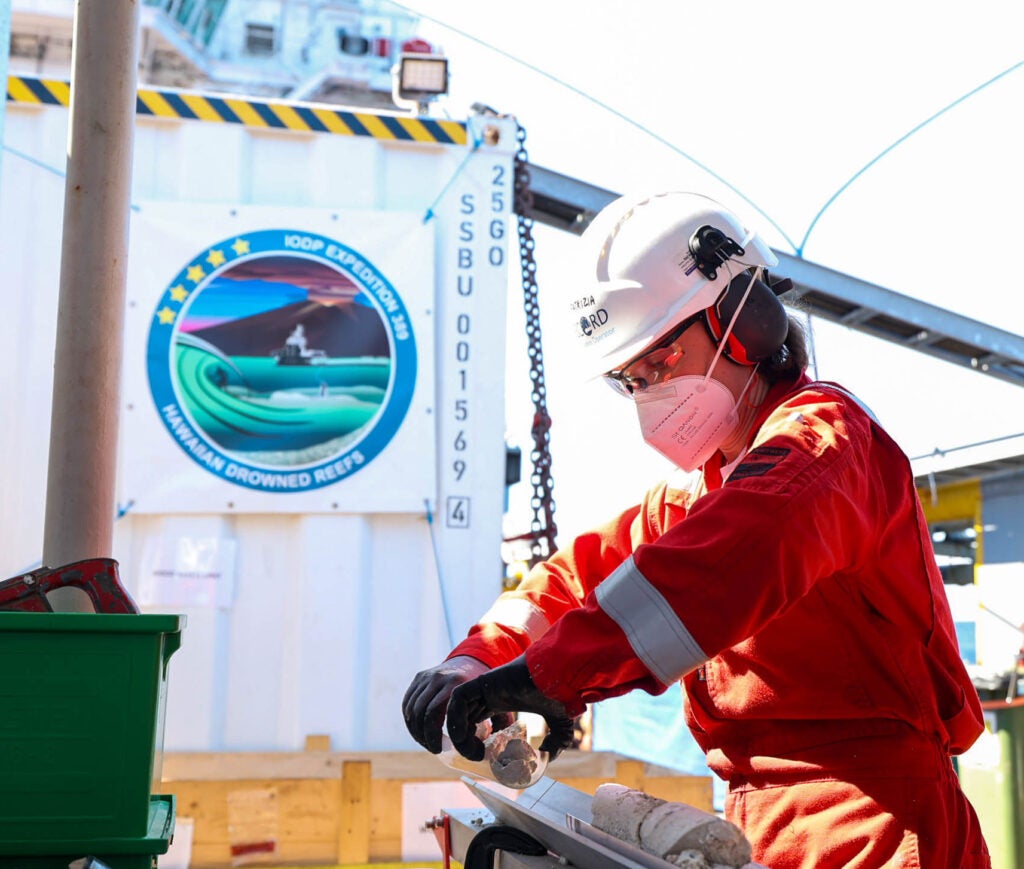
Kenna Rubin, associate dean for research at GSO, was part of an international research team that succeeded in obtaining a rare, high-resolution continuous record of environmental data from shallow-water corals off the coast of Hawaii by coring fossil coral reefs.
Rubin brought expertise in volcanology and geochronology to the expedition, where she led one of the sampling teams, and now continues to conduct research on samples at GSO.
HaWAII Drowned reefsNOAA Ocean Exploration Cooperative Institute (OECI) renewed for another five years
Led by GSO, the OECI unites leading institutions, including Woods Hole Oceanographic Institution, University of New Hampshire, The University of Southern Mississippi, and the non-profit Ocean Exploration Trust, to maximize our ability to understand the deep sea in new and exciting ways.
Together, we are advancing ocean technologies, supporting the blue economy, and training the next generation of ocean explorers.
Explore the unknown ocean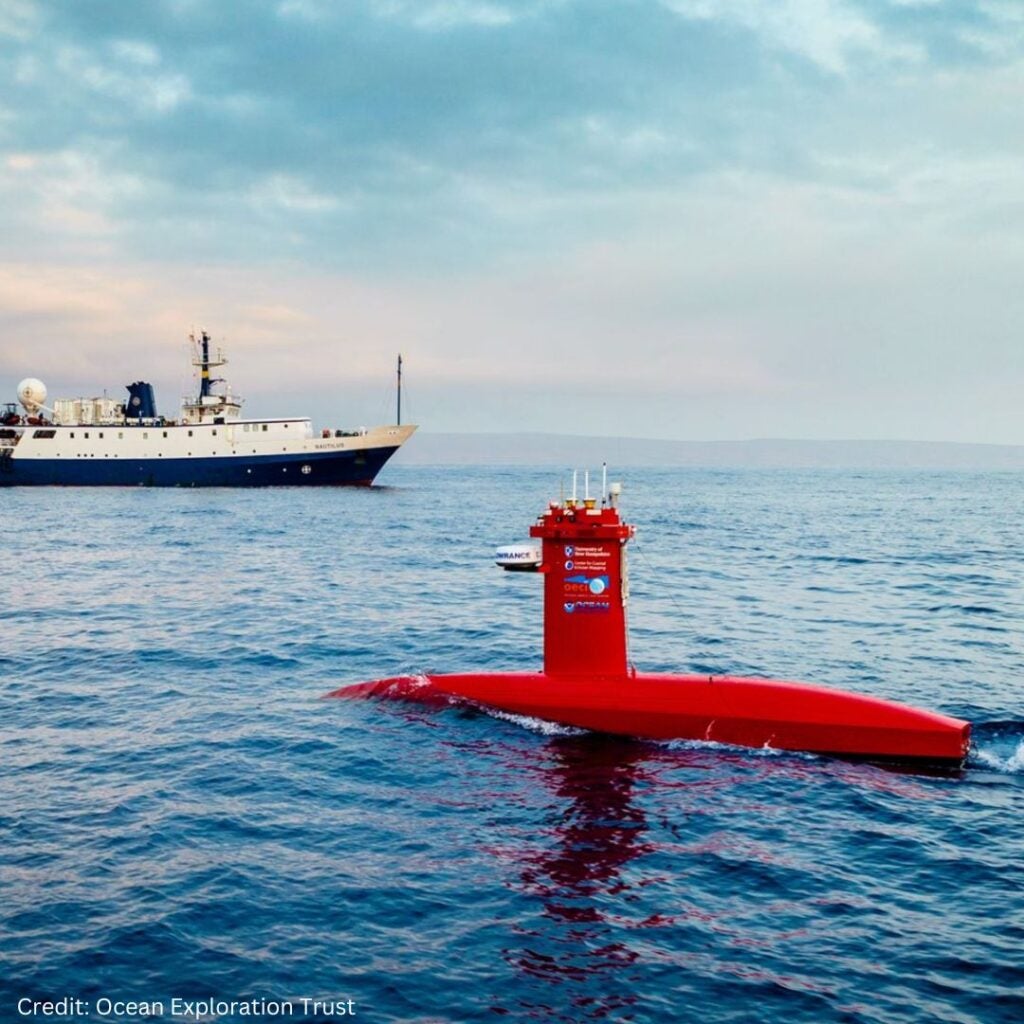
GSO-led expedition embarks on a research cruise to the Southern Ocean
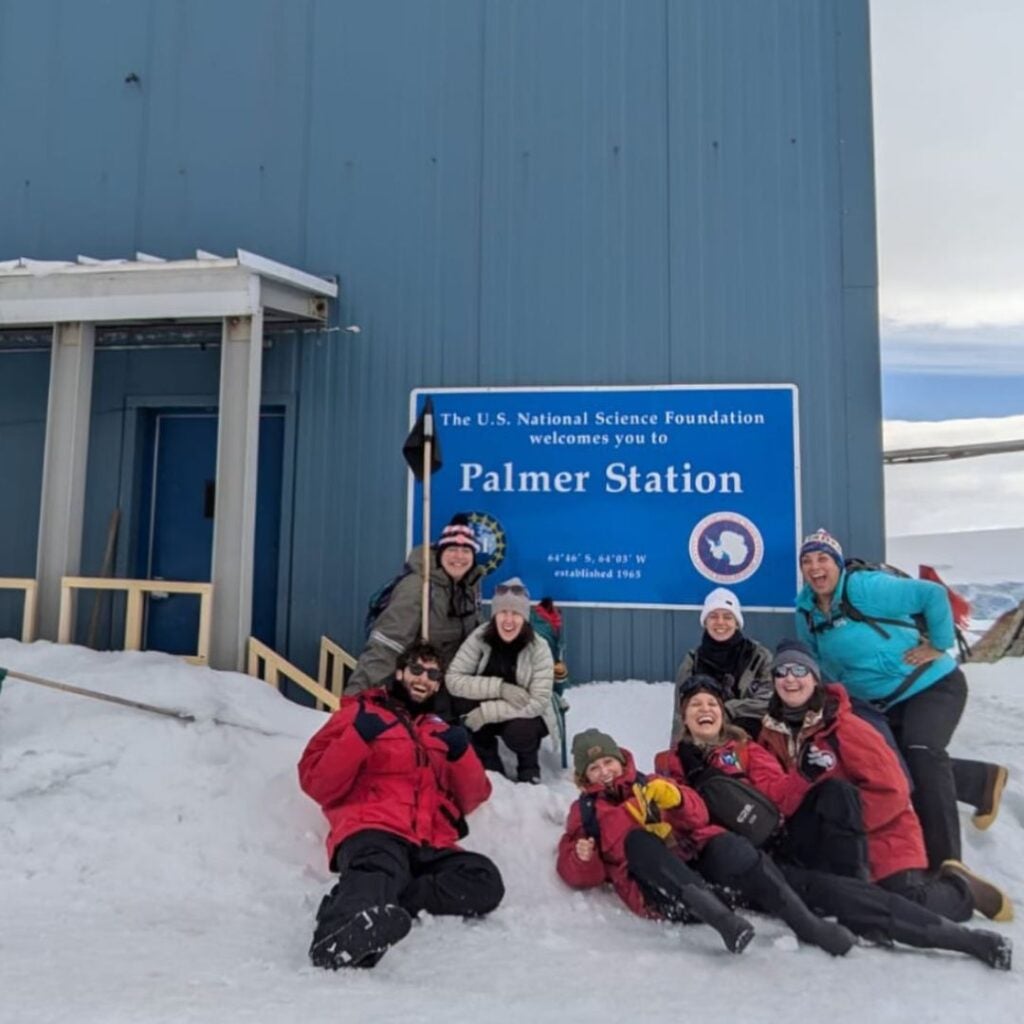
A team of students, faculty, and staff from URI and UC Santa Barbara, led by GSO’s Becky Robinson, had a long transit to 170°W. The mission? To study how diatoms build their nitrogen and silicon-rich shells and to better understand how these isotopic signals are produced and preserved in fossils.
The group braved the notoriously rough waters of the Drake Passage and visited Palmer Station, where they hiked the glacier, spotted penguins, and even took a polar plunge.
BP2410: SnowBIRDS IICelebrating progress on Narragansett Bay Campus renewal
Federal and state leaders joined us on GSO’s Knauss Quad for a beam-signing ceremony to celebrate the progress of Narragansett Bay Campus renewal.
The Bay Campus is in the middle of a multi-year modernization of facilities and infrastructure – work that will expand the University’s global excellence in ocean science and leadership in the Blue Economy.
Campus Renewal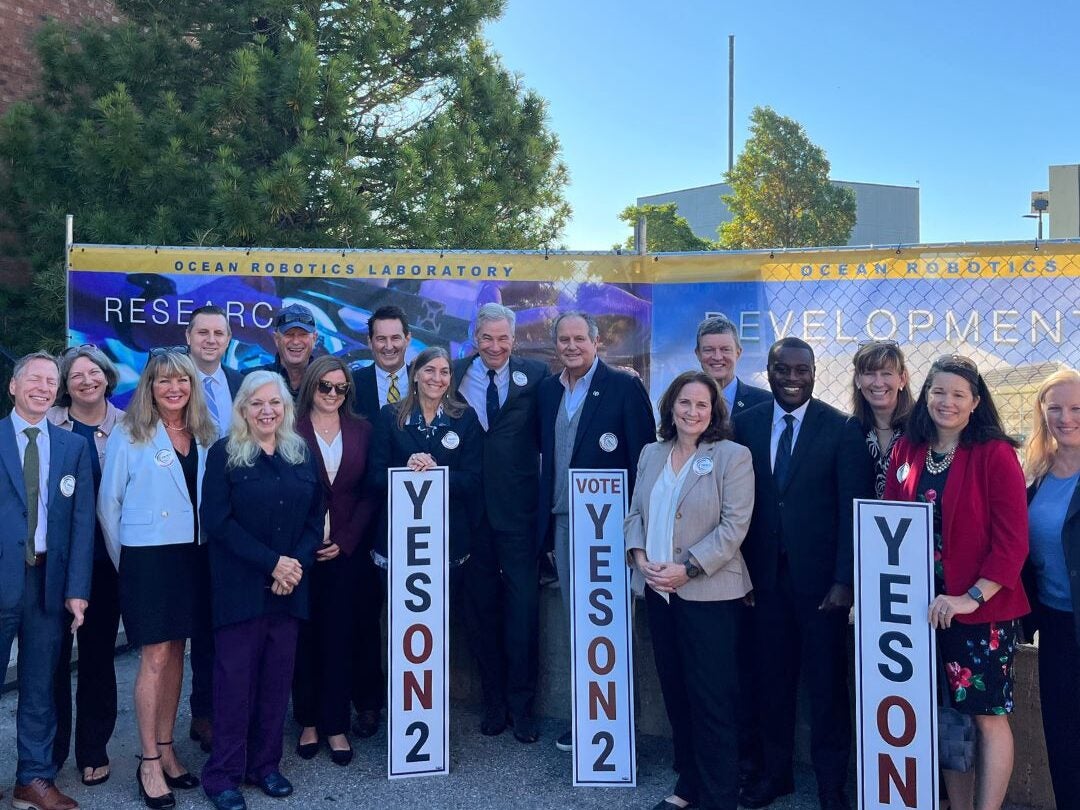
MB Inspiration repair and relaunch
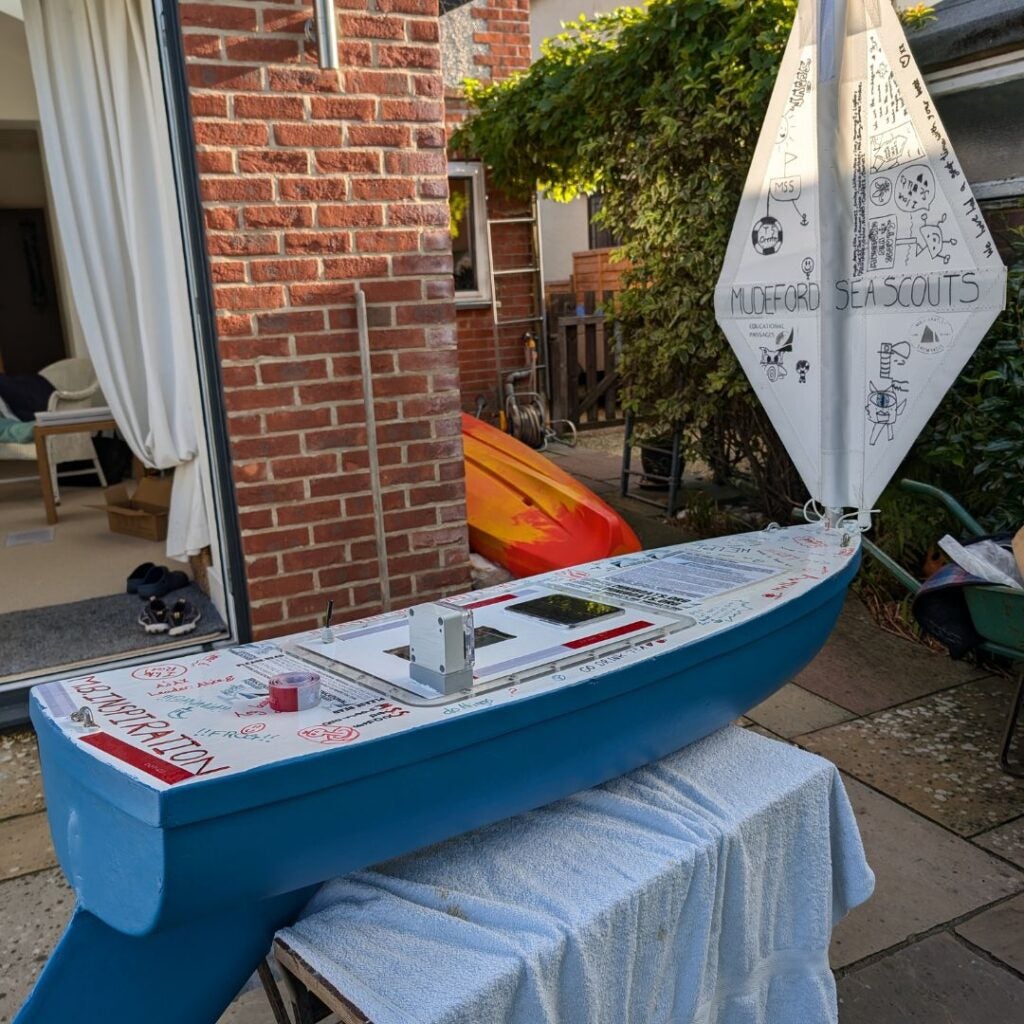
Voyage #2 for MB Inspiration began in December! After crossing the Atlantic and washing ashore in the U.K., this miniboat, built by Central Falls students with GSO and Educational Passages was repaired by the Mudeford Sea Scouts and students in Lymington, England.
Finally, the miniboat was relaunched off the Canary Islands!
Science Saturday returned on September 7
Science Saturday was a day full of exhibits, tours and conversations centered on marine exploration, discovery, science and conservation!
We welcomed 2,000 visitors, including hundreds of curious kids who asked thousands of questions throughout the day.
Science Saturday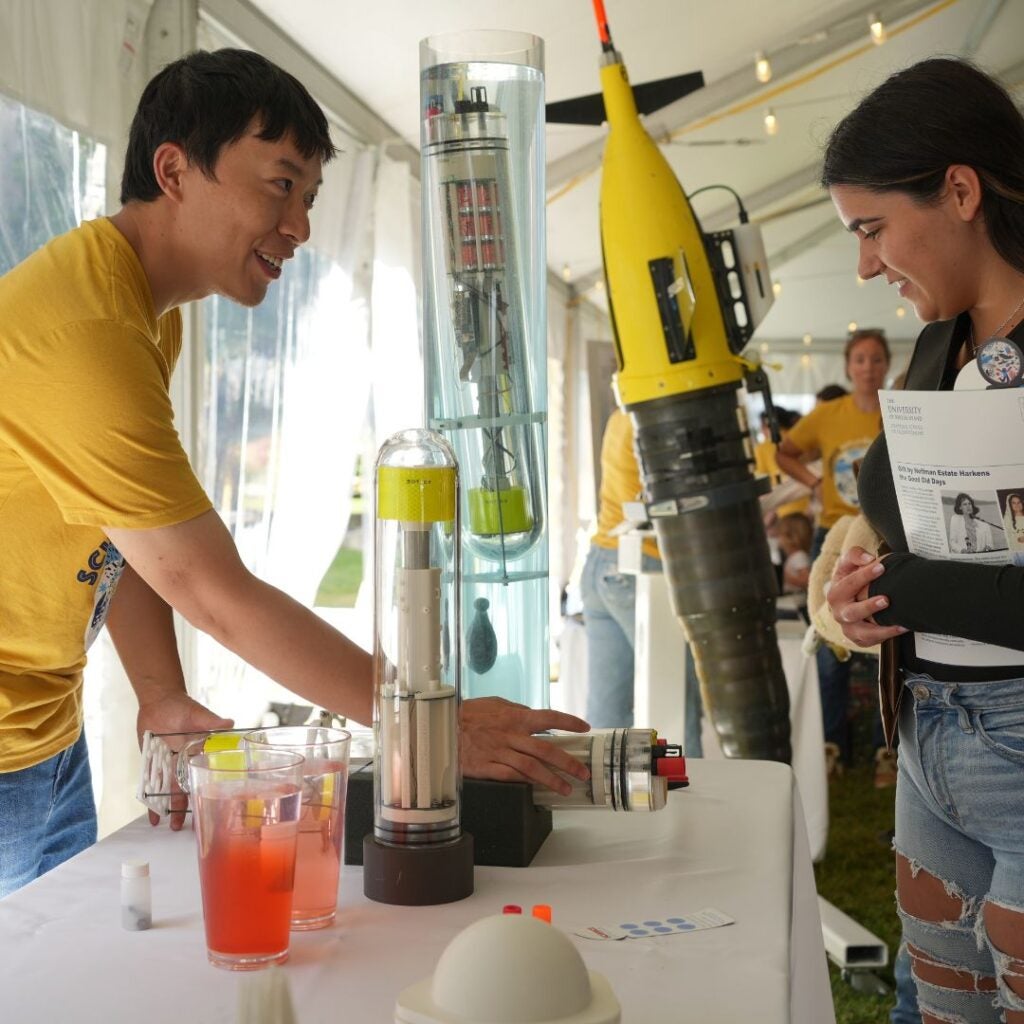
Wow, what a year! Thank you for being part of the journey—here’s to more ocean science, discoveries, and exciting moments in 2025. Stay tuned!
